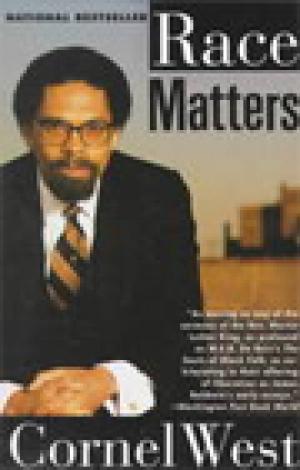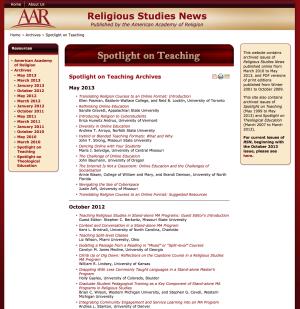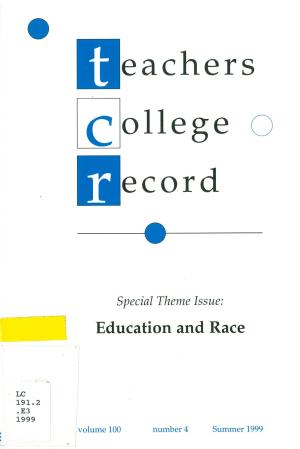Resources

First published in 1993 on the one-year anniversary of the L.A. riots, Race Matters has since become an American classic. Beacon Press is proud to present this hardcover edition with a new introduction by Cornel West. The issues that it addresses are as controversial and urgent as before, and West's insights remain fresh, exciting, and timely. Now more than ever, Race Matters is a book for all Americans—one that will help us build a genuine multiracial democracy. (From the Publisher)

Journal Issue. Full text is available online.

Carlos Cortés has been a first-hand observer and participant in the growth of multiculturalism and multicultural education from their birth in the social movements of the 1960s to the present day. In this unique collection of essays about diversity, society, and education, he provides readers with valuable insights, both from his own life story and from some of the most thought-provoking articles he has written over the past three decades. In many ways, Cortés's personal and professional story is the story of the multicultural movement itself, and this volume gives witness to the struggles and successes that Cortés and many others have experienced while striving to create a place for the voices, values, and visions of racial and ethnic groups in our culturally diverse nation and shrinking world. This one-of-a-kind reflective history: * Examines the evolving nature of multiculturalism and multicultural education as a dynamic and interactive process. * Features the perspective of a historian who has participated in the multicultural education movement. * Urges readers to reflect on their own lives, careers, and efforts to meet the challenges and opportunities of our increasingly diverse society. * Helps educators examine their own reasons for participating in the struggle to build a better multicultural future for our children. (From the Publisher)

Journal Issue.
Identifies a teaching method which calls upon students to prepare and present lessons for most of the semester. Notes that the technique allows the instructor to derive more enjoyment from teaching and spend less time preparing lessons. Describes application of the method in a "Feminist Theory in the Humanities" course.
The inclusion of race-related content in college courses often generates emotional responses in students that range from guilt and shame to anger and despair. The discomfort associated with these emotions can lead students to resist the learning process. Based on her experience teaching a course on the psychology of racism and an application of racial identity development theory, Beverly Daniel Tatum identifies three major sources of student resistance to talking about race and learning about racism, as well as some strategies for overcoming this resistance.
Three classroom climates in courses focusing on inequality are identified, those of resistance, paralysis, and rage. In resistant classes, students deny the importance of class, gender, race, and other lines of stratification or fail to see their structural sources. In paralyzed classes, students are so overwhelmed by the pervasiveness of inequality that they become debilitated and depressed; social structures are reified, giving them a false aura of inevitability. In enraged classes, the existence of stratification sparks so much anger that students lash out in an unfocused manner that is often blind to the complexities of stratified societies. In this article, I offer suggestions for responding to each of these three classroom climates.